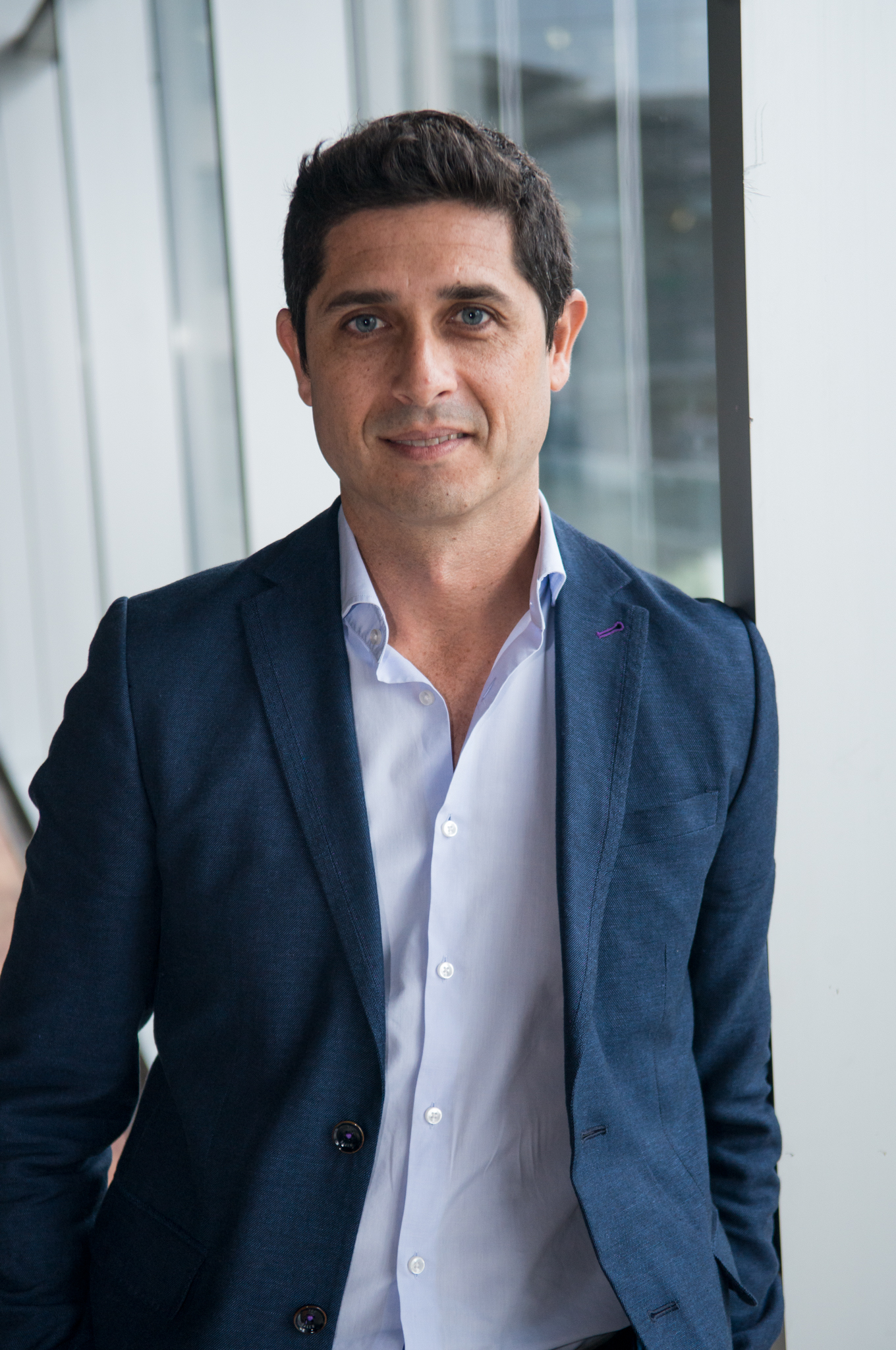Not long ago, someone asked Jacobo Cohen Imach what had kept him doing the same work at the same company for the past 21 years.
Cohen Imach, whom everyone calls “Jaco,” said he was struck by the question. “I responded that I was not doing the same work and I was not at the same company,” Jaco says. “And that’s one of the most singular, interesting and challenging aspects of working at Mercado Libre.”
MercadoLibre.com is the Amazon.com of Latin America — the region’s leading e-commerce ecosystem with an expansive footprint in 18 countries. The company combines its online business-to-consumer marketplace with fintech and logistical solutions for its customers. In 2019, Mercado Libre, Inc. generated almost US$2.3 billion in annual revenue.
Jaco, who joined the company in 1999 as its first in-house counsel, is now the company’s Senior Vice President and General Counsel, overseeing a team of 100 lawyers from the company’s Buenos Aires headquarters. “Throughout the years, the role of in-house counsel here has changed a lot,” he says. “However, what was expected from us still remains, which is that we enable the business.”
At Mercado Libre, this is significant because of the different ways the company has been doing business, Jaco explains. “Over the past 21 years, we did business in countries where regulation was not meant for the internet, or for e-commerce or for e-commerce logistics. So, we had to develop thick skin in order to manage the risks.”
Managing an evolving business model
When Mercado Libre began, it was more like the eBay.com of Latin America — a strictly consumer-to-consumer auction site that let customers transact business mostly on their own. Now, the company facilitates the sale of everything, from clothing and cars to books, real estate and groceries. It counts individual sellers and large retail stores as its customers, helping them to reach buyers and move products. The company also launched two business initiatives that help sellers collect their money (Mercado Pago, for fintech solutions, in 2004) and ship their products (Mercado Envíos, for logistical solutions in 2015). “These two initiatives are very tied to each other because when you buy something on Mercado Libre, these help you get the product faster and more securely,” Jaco adds.
“In all these years, our roles, the expectation on us and the knowledge that is required from us as lawyers changed a lot,” Jaco says. “Of course, once we became a bigger company, with a bigger market cap, that brings other attention from regulators, from governments and from other players — and we have had to be ready for that.”

All of the growth and new initiatives made Jaco rethink the structure of his legal team two years ago, he says, adding that the law department went through a reorganization, which Jaco had predicted would last
for at least five years. Yet, just this past December, Jaco reorganized the team again, dividing his department into verticals — for fintech, the marketplace business, the logistics business, dispute resolutions (a critical consideration for an e-commerce site that relies on satisfied customers), and also for data protection and privacy. In addition, Jaco has a team devoted to legal operations, which is not common practice among Latin American companies or law firms. “This is the way I structured the team,” Jaco says, adding that the December restructuring was necessary because while most of the components were already in place, “the dynamics are different, the needs are different, the specialties are different and the deepness required is different” because of the company’s growth and increasing complexity. “So, I decided to restructure again,” he says.
The push for innovation
Jaco has always tried to be forward-thinking. As a result, he learned very early on that most legal work could be commoditized, that is, done by artificial intelligence, third parties or innovative work processes guided by software. So, he decided to move the legal team at Mercado Libre along that route early. “I think four or five years ago, when nobody was talking about legal innovation in Latin America, I wanted to try,” he continues. “And that goes back to what I think is our role as in-house counsel at Mercado Libre, which is to enable business.” If Jaco and his legal team spend too much time working on nonrevenue streams, for example, by rewriting contracts, or searching for legal or regulatory precedents, he sees this as time taken away from the business, diminishing the value of the legal team.
“I would rather spend that time sitting next to our businesspeople trying to figure out how to enable their initiatives, or how to structure our response from a legal standpoint on any given new business — or just making better what we have now,” he explains.
With that in mind, Jaco says he tried very early to adopt the technologies, software, processes and innovative workflows to get the law department in the best position to further facilitate the business. For example, after noticing that 30% of the contracts the legal team executed were related to matters that didn’t bring any revenue to the organization, the team developed a legal kiosk on their own. The kiosk featured more than 80 different types of contracts that anyone could access, and after answering 10 or 12 auto-generated questions, they would receive a template of the needed contract. “And, we developed that ourselves.”
“I would rather spend that time sitting next to our businesspeople trying to figure out how to enable their initiatives, or how to structure our response from a legal standpoint on any given new business — or just making better what we have now.”
Legal operations and the team that manages it have become a crucial part of this mission as well, Jaco
says. “We are working on many different fronts, from streamlining our dispute resolutions and contract management to most recently, developing a bot that will respond to the many legal inquiries we receive,” he explains. This process has taken Jaco and his legal team on a journey of self-assessment, a near-continual review of what is working, not working and what can be made to work better, he says.
Because Jaco took this tech-enabled view early on, he did face a challenge convincing company management that it was the right thing to do, especially in a region that wasn’t known for being technology focused. “I truly believe that if we do not take advantage of technology, then we as lawyers are going to be over very soon,” he suggests. “Unfortunately, I am not seeing this attitude much in Latin America.” Too many lawyers here think they cannot be replaced, he contends, but they can be, by artificial intelligence or by cheaper third-party firms. “If I have to compete with artificial intelligence for a certain type of contract, I will lose because the computer will search hundreds of years of jurisprudence, case law and other contracts in seconds, and I cannot deal with that,” he explains. “So instead, why shouldn’t I take advantage of that?” By using AI for what it’s best at, lawyers can spend more time doing what they’re best at — work matters that computers cannot compete with, he says. “This is how I see it, and how we see it on the team.”
And that also helps define what he sees as his role at Mercado Libre. The legal function does not exist to eliminate legal or regulatory risks, but instead to identify risks and ensure the company does business in a proper way — while still making things happen.
“This is something that I always try to talk about with my team,” Jaco explains. “We must ensure that we understand the vision of the company — in our case, it is to democratize commerce and payments. And with that in mind, we are very clear as to our mission as lawyers, and that’s to enable business. With these two words, I can summarize what is expected from us and what is our objective.”






